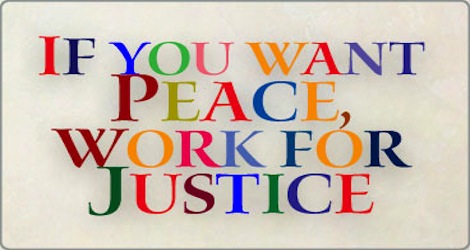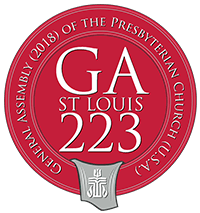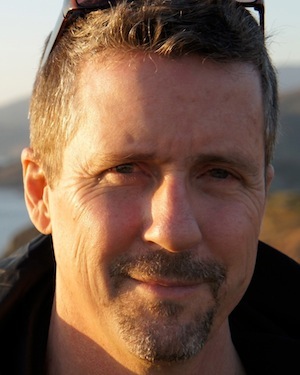
At the end of seminary while I was in the middle of discerning a call, I was invited by the Reformed Church in America’s previous General Secretary, Rev. Wes Granberg-Michaelson, to participate in a continuing education cohort. Our focus: social justice. It is now two years out from that invitation. I am neck-deep in my call in New York City, and our continuing-education experience has officially ended. Nevertheless, the questions asked and the lessons learned while looking towards the future witness of the Gospel of Jesus and the church continue to come to life.
What We Did
Our group of ten, led by Wes, met five times over eighteen months. In our first meeting we knew our focus was to be on social justice, but we had to decide who we wanted to meet, why we wanted to meet them, and what our hopes were in our pursuit of refinement in the area of social justice.
We traveled to Florida, where Brian McLaren graciously welcomed us to his house to explore social justice from a global perspective. Diana Butler Bass joined us that day, and we discussed the historical movements of justice and the church. We also gathered in Washington, DC, and met with Jim Wallis and the Sojourners team to discuss the intersection of the political realm and the faith community.
In between our large gatherings we met with local cohorts that we had each assembled in our own contexts. Each one of us had a small group of people with whom we met to discuss what we were learning and to explore what God was calling us to do. Krista Dalton, a PhD student at Columbia studying Jewish and Christian justice narratives, was part of my local cohort. She reminded us about tikkun olam, the Hebrew concept of “repairing the world.” We are obligated to care for each other, particularly the most vulnerable.
Our final gathering involved a presentation to the Reformed Church in America’s denominational leaders, Western Theological Seminary’s professors and staff, and local ministers and lay leaders in Holland, Michigan. We shared our concluding conviction in a call to our denomination: social justice is rooted in our ecclesiology. Social justice is not a program we do in the church; it is who we are. The church is called to be the very presence of Jesus, and we do this by making wrong things right through our social witness.
What I Learned
1.) I think I came out of my mother’s womb with a heartbeat for justice. I’ve always been able to see through the lies of inequality of institutions and people quite quickly. “Truth-telling” has been a motto of mine for years. During the months with my cohort, I learned that justice has to be partnered with mercy. I was influenced by Rabbi Abraham Joshua Heschel’s concept of God’s Divine pathos when I read his book The Prophets. I had always been passionate about the “do justice” part of Micah 6:8 but often forgot the other aspects: “love mercy” and “walk humbly.” These two years helped me understand the importance of holding all of Micah 6:8 together in tension and to do so faithfully in the church I serve.
___________________________________________
Social justice is rooted in our ecclesiology. Social justice is not a program we do in the church; it is who we are.
___________________________________________
2.) I learned that part of my role is to utilize my privilege to ensure voices that are not always heard can be heard. I do not want to let my role of solidarity tempt me to speak for people for whom I am advocating, but I instead seek to utilize my privilege so that the people for whom I am advocating can speak for themselves. I think this is going to be a hard task for the church as we pursue ministries of advocacy and justice.
3.) In his final speech as General Secretary in 2011, Rev. Wes Granberg-Michaelson asked the General Synod “What do we do about Jesus?” This is our central question. In my two years with the social justice cohort, I have become increasingly convinced that social justice divorced from the Scriptural witness of Jesus is lacking in substance. Why am I LGBTQ-affirming? Because of the witness of Jesus. Why do I search for ways for my congregation to cross socio-economic boundaries and worship with those who live differently than they do? Because of the witness of Jesus. The more I consider Christ, the more inclusive I become in my ministry. Wes’ question haunts me daily and has greatly influenced the course of my ministry.
Questions to Consider
1.) The Gospel is profoundly political, and yet my generation is tired of political debates that misunderstand a political party as the reign of God. So how can we engage our churches to speak prophetically to the powers that govern us without selling our souls to particular political parties? When we read Matthew 25, we see it is not just the church that will be judged but the entire nation. Furthermore, what we will be judged on is how we cared for the hungry, the thirsty, the stranger, the sick, and those in prison. So when we talk about the Gospel being political, we mean that the Gospel is directly related to the affairs of our civil life together. The Gospel compels us to work for systematic changes that ensure the poor and the most vulnerable are cared for in our society. How do we do this without being seduced to pledge allegiance to a political party over the reign of God?
 2.) How can we sharpen our liturgies so that we are enacting social justice in worship? What words are we using that tell of tikkun olam? When we gathered at Brian McLaren’s house, he inspired me to consider a liturgical renaissance. If the church is home to social justice, then our worship must reflect the reality in which we are prophetically engaged. How can we refine our liturgies to enact justice, mercy, and walking humbly with God? For me, this means using words from the Belhar Confession in our worship. This means I often choose words from around the world to guide our worship, moving away from a Euro-Centric bias. I think Prayers of Confession provide an incredible opportunity to enact walking humbly with God. We are given a space to name the ways that we have participated in systems that tear down instead of repair. I do believe we are in need of a liturgical renaissance that will remind the church of her call. How will we liturgically enact the reign of God in worship?
2.) How can we sharpen our liturgies so that we are enacting social justice in worship? What words are we using that tell of tikkun olam? When we gathered at Brian McLaren’s house, he inspired me to consider a liturgical renaissance. If the church is home to social justice, then our worship must reflect the reality in which we are prophetically engaged. How can we refine our liturgies to enact justice, mercy, and walking humbly with God? For me, this means using words from the Belhar Confession in our worship. This means I often choose words from around the world to guide our worship, moving away from a Euro-Centric bias. I think Prayers of Confession provide an incredible opportunity to enact walking humbly with God. We are given a space to name the ways that we have participated in systems that tear down instead of repair. I do believe we are in need of a liturgical renaissance that will remind the church of her call. How will we liturgically enact the reign of God in worship?
3.) Are we ready to be courageous? I am increasingly concerned that the church in the US is too often tempted to be tame. I wonder if we have misunderstood the godly pursuits of unity, peace, and mercy, and if, as a result, our prophetic witness is looking much tamer than it is called to be. The Gospel of Jesus is a courageous path. We need not be scared for the Holy Spirit Herself strengthens us as we follow the way of Jesus. I pray we will walk forward courageously in kindness, love, forgiveness, and justice. I hear the Eucharistic prayer as I write this – “Send your Holy Spirit upon us we pray” – for we do pray for God’s Spirit in the steps toward courage.
Together, with all the sinners and saints, grace and peace.
AUTHOR BIO: The Reverend Jes Kast-Keat is the Associate Minister at West End Collegiate Church in New York City. She serves as Vice-President of the board for Room for All and has previously served on the Belhar Implantation Task Force (Reformed Church in America). For inspiration, Jes drinks tea while reading Mary Oliver or visits the Museum of Modern Art. She is found online @jeskastkeat.Read more articles in this series.






Unbound Social